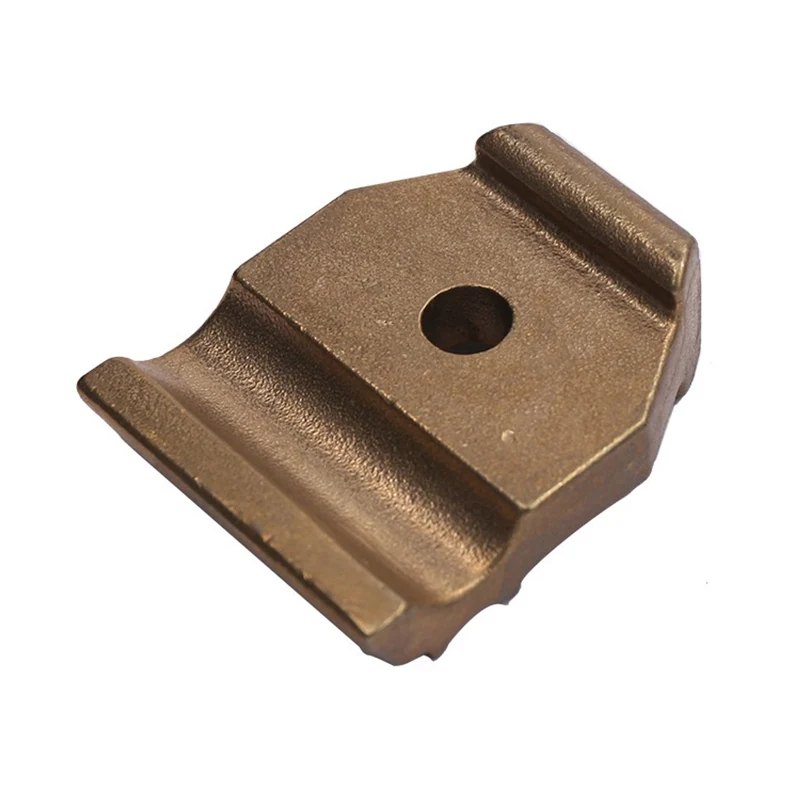- English
- Español
- Português
- русский
- Français
- 日本語
- Deutsch
- tiếng Việt
- Italiano
- Nederlands
- ภาษาไทย
- Polski
- 한국어
- Svenska
- magyar
- Malay
- বাংলা ভাষার
- Dansk
- Suomi
- हिन्दी
- Pilipino
- Türkçe
- Gaeilge
- العربية
- Indonesia
- Norsk
- تمل
- český
- ελληνικά
- український
- Javanese
- فارسی
- தமிழ்
- తెలుగు
- नेपाली
- Burmese
- български
- ລາວ
- Latine
- Қазақша
- Euskal
- Azərbaycan
- Slovenský jazyk
- Македонски
- Lietuvos
- Eesti Keel
- Română
- Slovenski
What is the Process Principle of Gravitational Casting?
2025-08-08
Gravitational casting, also known as gravity die casting, is a metal casting process that utilizes gravity to fill a mold with molten metal. This method is widely used in manufacturing high-quality metal parts with excellent dimensional accuracy and surface finish. Unlike high-pressure die casting, gravitational casting relies solely on gravity to fill the mold cavity, making it ideal for producing dense, low-porosity components.
Key Features of Gravitational Casting
Gravitational casting offers several advantages, including:
High Precision: Produces parts with tight tolerances and minimal machining requirements.
Superior Surface Finish: Delivers smooth surfaces, reducing post-processing needs.
Cost-Effective: Lower tooling costs compared to high-pressure die casting.
Material Versatility: Suitable for aluminum, zinc, brass, and other non-ferrous metals.
Gravitational Casting Product Parameters
Below is a detailed breakdown of our gravitational casting capabilities:
Technical Specifications
| Parameter | Details |
|---|---|
| Material Options | Aluminum, Zinc, Brass, Magnesium Alloys |
| Max Part Weight | Up to 25 kg |
| Tolerance | ±0.2 mm to ±0.5 mm |
| Surface Finish | Ra 1.6 µm to Ra 6.3 µm |
| Production Rate | 50 - 500 units per hour (depending on complexity) |

Advantages of Our Gravitational Casting Services
High Strength & Durability – Reduced porosity ensures stronger components.
Excellent Thermal Conductivity – Ideal for heat dissipation applications.
Eco-Friendly Process – Lower energy consumption compared to other casting methods.
Frequently Asked Questions (FAQ)
Q: What metals are best suited for gravitational casting?
A: Gravitational casting works best with non-ferrous metals such as aluminum, zinc, and brass due to their lower melting points and excellent flow characteristics.
Q: How does gravitational casting differ from sand casting?
A: Unlike sand casting, which uses expendable molds, gravitational casting employs reusable metal molds, resulting in better precision and surface finish.
Q: What industries commonly use gravitational casting?
A: This process is widely used in automotive, aerospace, and electronics industries for producing engine components, heat sinks, and structural parts.
Q: Can gravitational casting produce complex geometries?
A: Yes, but it is more suitable for medium-complexity parts. Highly intricate designs may require additional machining or alternative casting methods.
Q: What is the typical lead time for gravitational casting production?
A: Lead times vary based on part complexity, but standard production typically takes 2-4 weeks, including mold preparation and finishing.
Gravitational casting is a highly efficient and cost-effective manufacturing process for producing high-quality metal components. With superior precision, excellent mechanical properties, and versatility in material selection, it remains a preferred choice for many industries. If you need durable, high-performance metal parts, gravitational casting provides an optimal solution.
For more details on our gravitational casting services, contact our team today!



